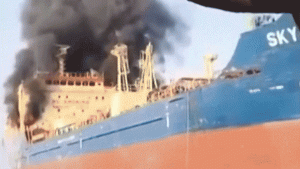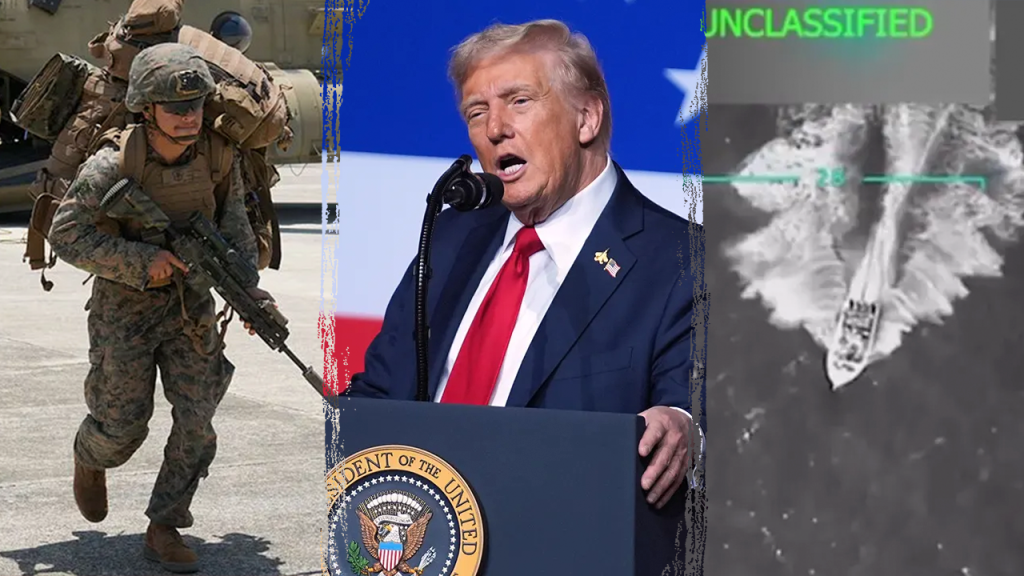Trump Administration Bolsters Anti-Drug Efforts with Naval Deployment to Caribbean
In a significant escalation of its counter-narcotics operations in the Western Hemisphere, the Trump administration has ordered the deployment of the Gerald R. Ford Carrier Strike Group to the Caribbean region. This deployment represents a substantial commitment of military resources toward combating drug trafficking operations that the administration views as a direct threat to U.S. national security. According to Pentagon spokesman Sean Parnell, the carrier group’s mission aligns with President Trump’s directive to dismantle Transnational Criminal Organizations (TCOs) and counter narco-terrorism. The deployment aims to “bolster U.S. capacity to detect, monitor, and disrupt illicit actors and activities that compromise the safety and prosperity of the United States homeland and our security in the Western Hemisphere,” Parnell stated in his announcement on Friday.
The impressive naval force being directed to U.S. Southern Command’s area of responsibility includes the USS Gerald R. Ford—the world’s largest aircraft carrier—accompanied by three Arleigh Burke-class guided-missile destroyers: the USS Mahan, USS Winston S. Churchill, and USS Bainbridge. Currently stationed in the Mediterranean Sea, the strike group faces several days of transit before reaching South American waters. This redeployment marks a significant shift in U.S. naval posture, as it will leave the Middle East region without an American aircraft carrier presence for the first time in years, highlighting the administration’s prioritization of the drug trafficking threat emanating from South America and the Caribbean.
The carrier group’s deployment represents just one component of the Trump administration’s intensifying campaign against drug trafficking networks in the Caribbean. The administration has already authorized multiple strikes against suspected drug smuggling vessels in the region. Most recently, War Secretary Pete Hegseth announced a strike that reportedly killed six alleged narco-terrorists aboard a vessel purportedly operated by members of Tren de Aragua (TdA), a Venezuelan street gang that has been designated as a terrorist organization. This operation marked the tenth such strike since President Trump returned to office, underscoring his administration’s aggressive approach. Hegseth’s statement on social media made the administration’s position clear: “If you are a narco-terrorist smuggling drugs in our hemisphere, we will treat you like we treat al-Qaeda. Day or NIGHT, we will map your networks, track your people, hunt you down, and kill you.”
The naval deployment and strikes occur against the backdrop of heightened tensions between the United States and Venezuela. President Trump has explicitly accused Venezuelan President Nicolás Maduro of functioning as a drug cartel leader, and recently confirmed authorizing CIA covert operations in Venezuela. Trump justified these actions by citing concerns over Venezuela releasing prisoners into the United States and facilitating drug trafficking through maritime routes. This aggressive stance represents a continuation and intensification of the hard-line approach the Trump administration previously took toward the Maduro regime during his first term, now with an increased emphasis on direct military and intelligence actions to counter perceived threats to U.S. security interests.
The U.S. Southern Command’s area of responsibility, where the carrier group will operate, encompasses Latin America south of Mexico, the Caribbean Sea, and adjacent waters to Central and South America. This vast region has long been a transit zone for drugs bound for the United States, but the current scale of military resources being directed to counter-narcotics operations there signals a new level of commitment from the administration. The deployment of such a significant naval asset as an aircraft carrier strike group to this mission indicates that combating the flow of narcotics is being treated as a top-tier national security priority, on par with traditional military operations in regions like the Middle East or the Indo-Pacific.
Despite the administration’s determination to pursue these operations, they have attracted significant scrutiny from lawmakers across the political spectrum. Questions about the legal authorization for such strikes have emerged, with senators including Adam Schiff (D-California), Tim Kaine (D-Virginia), and Rand Paul (R-Kentucky) introducing a war powers resolution aimed at prohibiting U.S. armed forces from engaging in “hostilities” against Venezuela. This bipartisan concern highlights the constitutional tensions that arise when military force is deployed without explicit congressional authorization, even when directed against non-state actors like drug trafficking organizations. As the carrier group makes its way to the Caribbean in the coming days, these legal and political questions are likely to intensify, particularly if additional strikes are conducted against suspected drug traffickers in the region.














